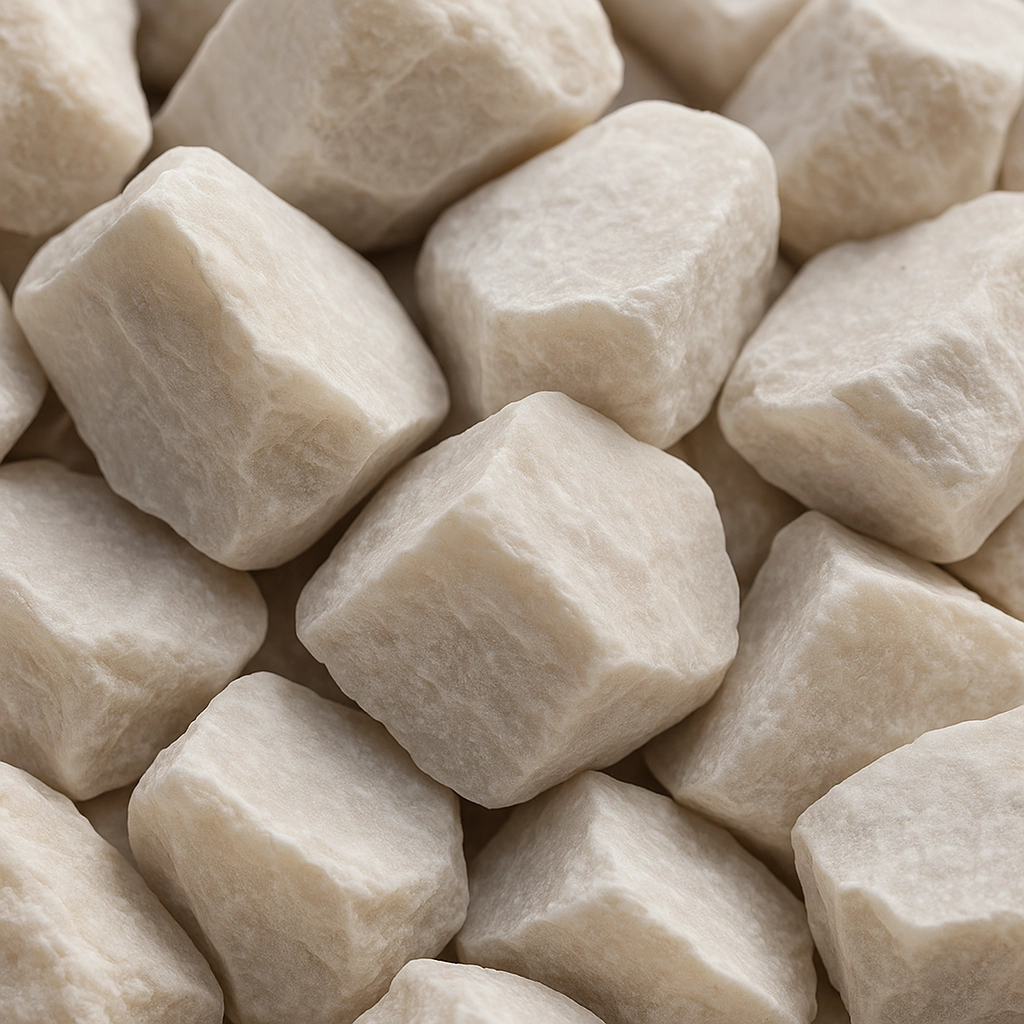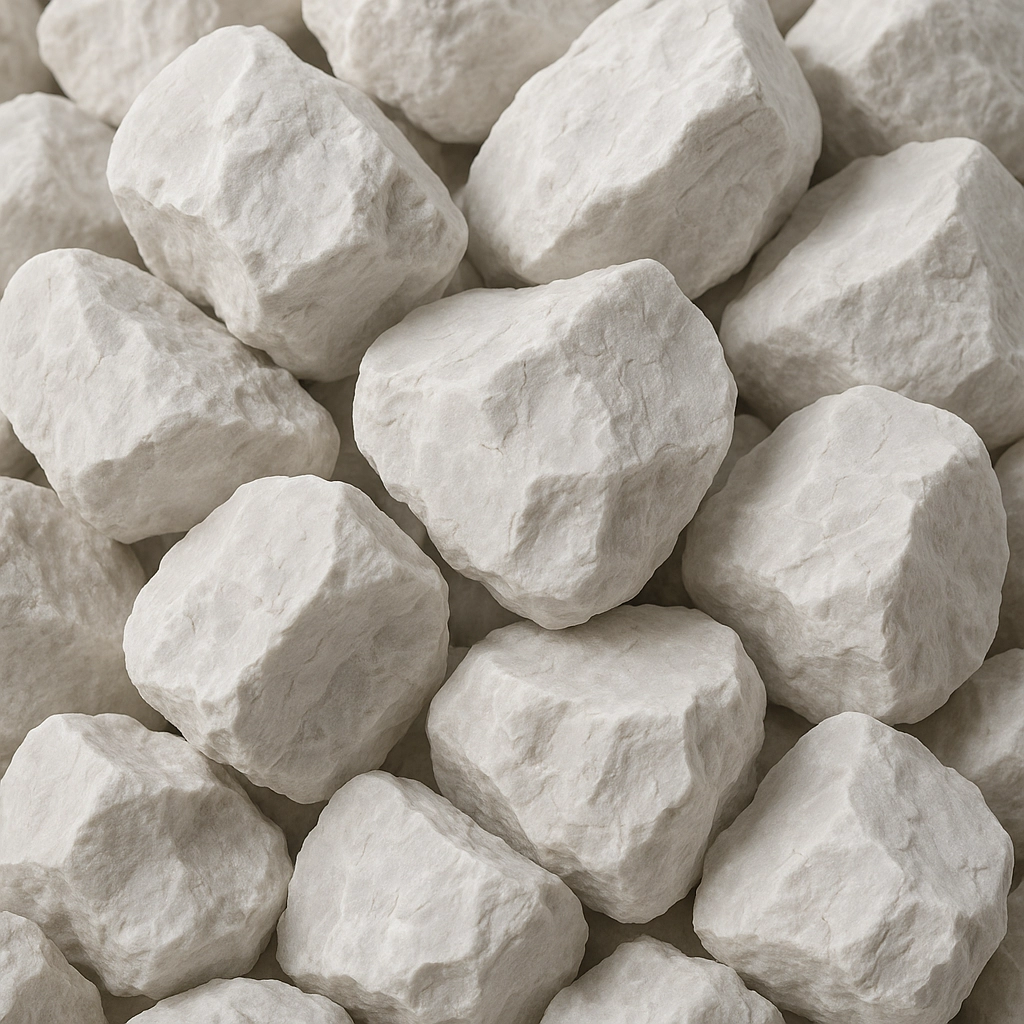


Gypsum, a natural mineral composed of hydrated calcium sulfate, is widely used in construction, medical applications, mould-making, and ceramics due to its softness and excellent formability. It also provides moderate thermal and acoustic insulation, while its uniform white color enhances surface aesthetics.
Gypsum is essential in the production of building plaster, orthopaedic plaster, and precise industrial moulds. Standardised extraction, crushing, and processing of gypsum ensure high product quality and significantly improve its performance across various applications.


Gypsum is one of the most widely used minerals, valued for its high purity, uniform texture, and good adhesion properties. It finds extensive applications in construction, cement, ceramics, sculpture, and mould-making. This material provides effective thermal and acoustic insulation and helps reduce cracking while stabilizing the structure of components. Its natural whiteness and sheen add aesthetic appeal to products.
Proper processing and strict quality control ensure long-lasting performance and high efficiency in industrial and construction environments, enhancing overall production productivity.
Gypsum is a versatile mineral widely used across various industries, with its properties and applications depending on type and purity. The most common natural form is non-crystalline gypsum, which serves as the primary raw material in building plaster production. After extraction and processing, it is used for wall and ceiling coatings as well as in mortars.
Beyond construction, gypsum plays a critical role in medical applications, including orthopedic casts and moldable dressings. In mold-making, its high formability and precision make it ideal for creating accurate molds. It is also used as an auxiliary material in alum sulfate production, cement manufacturing, porcelain, and ceramics. Certain grades of gypsum are even approved as additives in the food industry.
This wide range of applications makes gypsum a strategic and valuable material across multiple industrial sectors.
High-purity gypsum with a uniform texture not only withstands demanding production conditions but also helps maintain the quality and consistency of final products. Its low thermal expansion reduces cracking and deformation during industrial processes. These properties make gypsum an ideal choice for construction, cement, porcelain, and mold-making industries—enhancing product durability and aesthetics while lowering repair and replacement costs.
Our company supplies gypsum extracted from premium quarries and processed using advanced technology to meet global standards. Our expert team provides precise, specialized solutions to fulfil your industrial needs. On-time delivery, engineering consultation, and competitive pricing are among the benefits of working with us.
Our gypsum supports you in achieving high-quality production, increased efficiency, and reduced operational costs.

| Size (mm) | Moi% | So₃% | MgO% | CaO% | Fe₂O₃ | Al₂O₃ | SiO₂ | Combined Water% | CaSO₄·2H₂O% |
|---|---|---|---|---|---|---|---|---|---|
| 0-5 | 2 max | 41-42 | 1.5 max | 29 min | 0.1 max | 2.5 max | 0.1-0.5 | 18-19 | 90-92 |



WhatsApp us